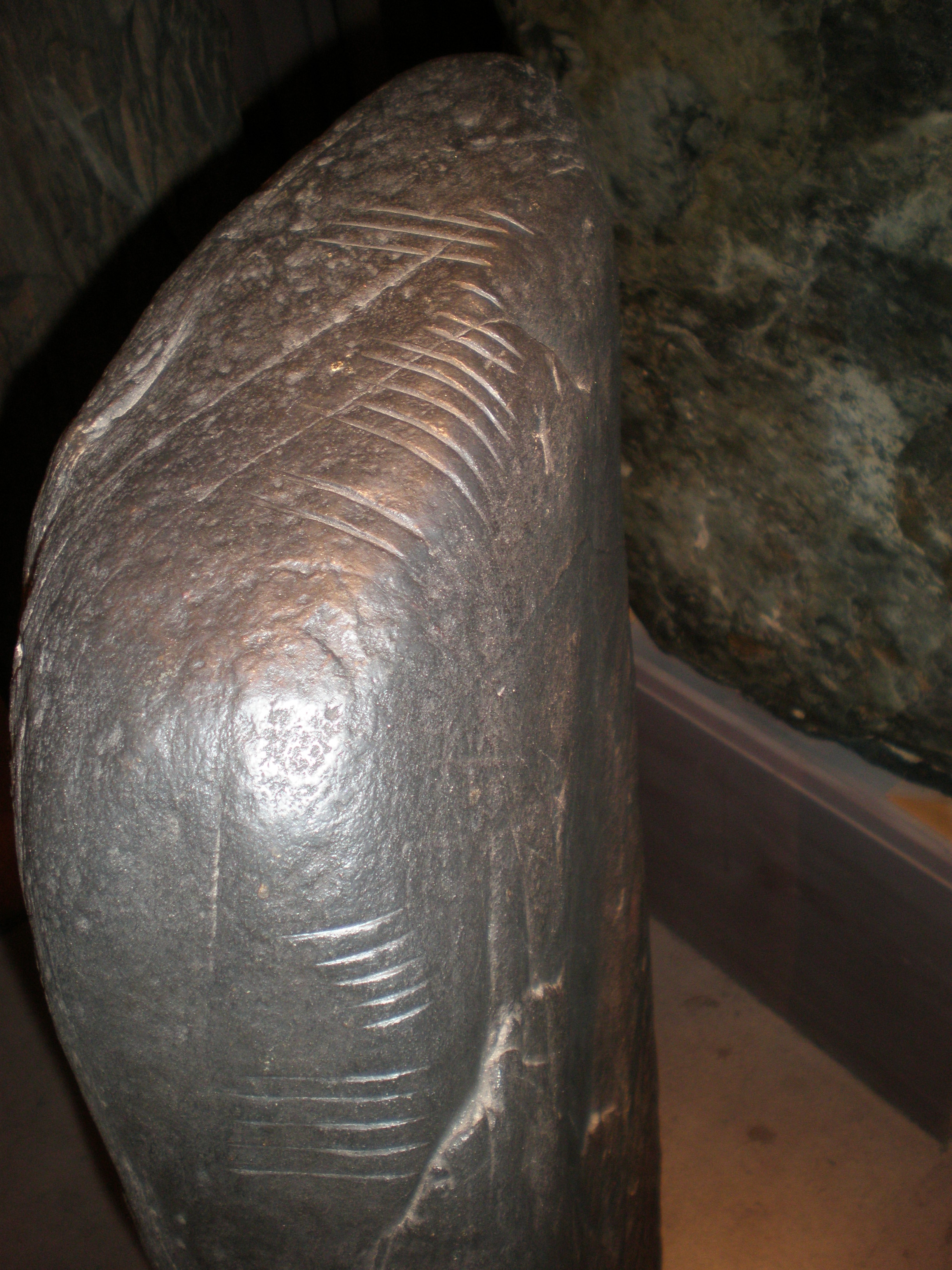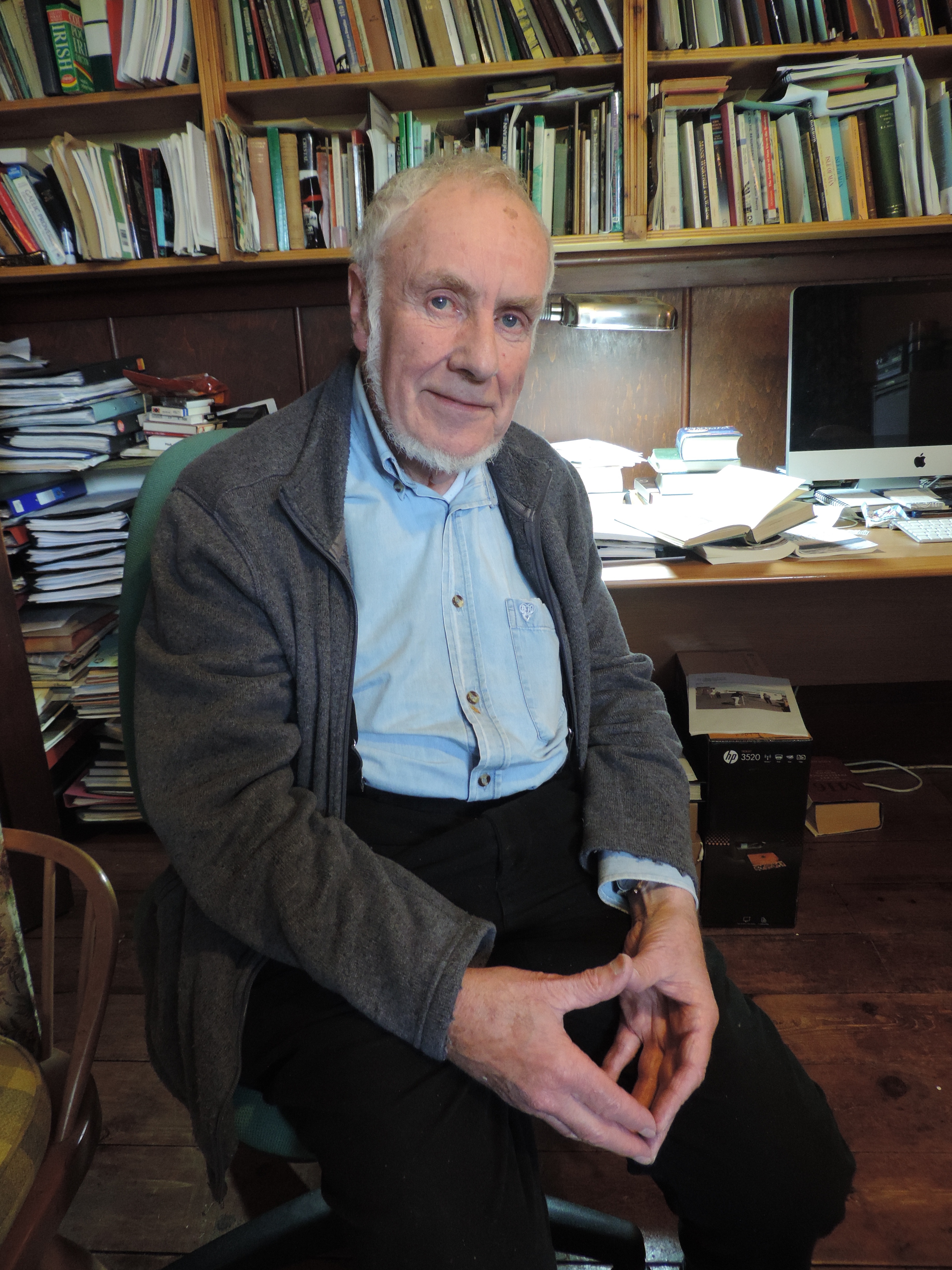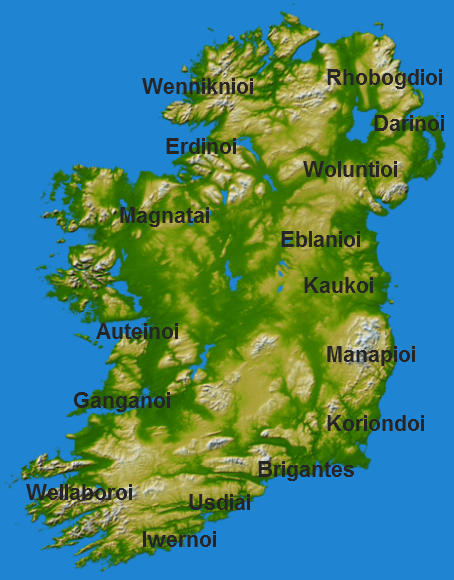|
Yn Çheshaght Ghailckagh
, also known as the Manx Language Society and formerly known as Manx Gaelic Society, was founded in 1899 in the Isle of Man to promote the Manx language. The group's motto is (Without language, without country). History Following the decline of Manx as a community language on the Isle of Man during much of the 19th century, there was renewed interest in the language most notably among educated men; this mirrors the founding of in Ireland as part of the Gaelic Revival. From 1897–1899 several meetings were held in Peel to discuss the Manx language. In the wake of these meetings, language classes began, as well as lectures given on Manx music and customs. The group's first president was A.W. Moore, later Speaker of the House of Keys. Several other prominent members of the Manx language revival, such as J. J. Kneen, Dr John Clague, and Edmund Goodwin, were all founding members of in 1899 in Peel. was not concerned only with the preservation and promotion of the Manx l ... [...More Info...] [...Related Items...] OR: [Wikipedia] [Google] [Baidu] |
Manx Language
Manx ( or , pronounced or ), also known as Manx Gaelic, is a Gaelic language of the insular Celtic branch of the Celtic language family, itself a branch of the Indo-European language family. Manx is the historical language of the Manx people. Although only few children native to the Isle of Man speak Manx as a first language, there has been a steady increase in the number of speakers since the death of Ned Maddrell in 1974. He was considered to be the last speaker to grow up in a Manx-speaking community environment. Despite this, the language has never fallen completely out of use, with a minority having some knowledge of it as a heritage language, and it is still an important part of the island's culture and cultural heritage. Manx is often cited as a good example of language revival efforts; in 2015, around 1,800 people had varying levels of second-language conversational ability. Since the late 20th century, Manx has become more visible on the island, with increased si ... [...More Info...] [...Related Items...] OR: [Wikipedia] [Google] [Baidu] |
Bill Radcliffe
John William Radcliffe (16 August 1917 – 28 January 1984), more commonly known as Bill Radcliffe, or also Illiam y Radlagh, was a Manx language activist, author, and teacher who was involved with the revival of the Manx language on the Isle of Man in the 20th century. His work recording the last native speakers of the language with the Irish Folklore Commission helped to ensure that a spoken record of the Manx language survived. Manx language Bill Radcliffe was one of the several active Manx speakers who learned the language from the diminishing number of elderly native speakers on the Isle of Man in the first half of the 20th century. Along with several other Manx speakers such as Doug Fargher, Charles Craine, and Leslie Quirk, Radcliffe learned Manx by travelling around the Manx countryside, visiting the elderly native Manx speakers and learning directly from them. These learners were part of a small tight-knit group of high level speakers who would go on to be vital memb ... [...More Info...] [...Related Items...] OR: [Wikipedia] [Google] [Baidu] |
Organizations Established In 1899
An organization or organisation (Commonwealth English; see spelling differences), is an entity—such as a company, an institution, or an association—comprising one or more people and having a particular purpose. The word is derived from the Greek word ''organon'', which means tool or instrument, musical instrument, and organ. Types There are a variety of legal types of organizations, including corporations, governments, non-governmental organizations, political organizations, international organizations, armed forces, charities, not-for-profit corporations, partnerships, cooperatives, and educational institutions, etc. A hybrid organization is a body that operates in both the public sector and the private sector simultaneously, fulfilling public duties and developing commercial market activities. A voluntary association is an organization consisting of volunteers. Such organizations may be able to operate without legal formalities, depending on jurisdiction, includin ... [...More Info...] [...Related Items...] OR: [Wikipedia] [Google] [Baidu] |
Cultural Organisations Based In The Isle Of Man
Culture () is an umbrella term which encompasses the social behavior, institutions, and norms found in human societies, as well as the knowledge, beliefs, arts, laws, customs, capabilities, and habits of the individuals in these groups.Tylor, Edward. (1871). Primitive Culture. Vol 1. New York: J.P. Putnam's Son Culture is often originated from or attributed to a specific region or location. Humans acquire culture through the learning processes of enculturation and socialization, which is shown by the diversity of cultures across societies. A cultural norm codifies acceptable conduct in society; it serves as a guideline for behavior, dress, language, and demeanor in a situation, which serves as a template for expectations in a social group. Accepting only a monoculture in a social group can bear risks, just as a single species can wither in the face of environmental change, for lack of functional responses to the change. Thus in military culture, valor is counted a typical be ... [...More Info...] [...Related Items...] OR: [Wikipedia] [Google] [Baidu] |
An Comunn Gàidhealach
An Comunn Gàidhealach (; literally "The Gaelic Association"), commonly known as An Comunn, is a Scottish organisation that supports and promotes the Scottish Gaelic language and Scottish Gaelic culture and history at local, national and international levels. The society is closely associated with the Royal National Mòd. The symbol used for An Comunn Gàidhealach is the Irish Sunburst flag at the top also a symbol associated in Irish mythology and the Celtic harp on the bottom right. History It was founded in Oban in 1891 to help preserve and develop the Gaelic language and to establish the Royal National Mòd (Scottish Gaelic: ''Am Mòd Nàiseanta Rìoghail''), a festival of Gaelic music, arts and culture modelled originally on the National Eisteddfod of Wales. Today An Comunn encourages the teaching, learning and use of the Gaelic language, and the study and cultivation of Gaelic literature, history, music and art. From 1905 to 1922 An Comunn Gàidhealach published a mo ... [...More Info...] [...Related Items...] OR: [Wikipedia] [Google] [Baidu] |
Lewis Crellin
Lewis Crellin (1901–1990) also known as Louis Crellin or Lewis y Crellin was a Manx language scholar and teacher who was involved with the revival of the Manx language on the Isle of Man in the 20th century and the Manx independence movement in the 1960s. Early life Lewis Crellin was born in Foxdale on the Isle of Man, but was orphaned at an early age and raised by his grandparents. Although Crellin was raised in an area that still had a significant number of older Manx speakers, he took no interest in it himself until he was much older. Manx language Crellin started learning Manx was he was nearly 40 years old. He learned Manx by visiting the elderly native speakers around the Island, who in turn introduced him to the small community of Manx language enthusiasts that included figures such as Walter Clarke, Doug Fargher, and Charles Craine. By this time Crellin was living in Peel and was attending Manx classes with the former Peel Harbour Master, Captain James Kinley, an ... [...More Info...] [...Related Items...] OR: [Wikipedia] [Google] [Baidu] |
Brian Stowell
Thomas Brian Stowell (6 September 1936 – 18 January 2019) also known as Brian Mac Stoyll was a Manx radio personality, linguist, physicist and author. He was formerly ("The Reader") to the Parliament of the Isle of Man, Tynwald. He is considered one of the primary people behind the revival of the Manx language. Early years and the Manx language Stowell was born in Douglas, Isle of Man on 6 September 1936 to Caroline (''née'' Stothard) and Tommy Stowell. His mother's maternal grandparents were native Manx speakers, although they did not pass the language on to their children. He attended Murray's Road Junior School before attending Douglas High School for Boys, where he excelled academically. Stowell was inspired to start learning Manx after he read an article written by Doug Fargher passionately defending the Manx language in 1953.Stowell, Brian (May 2011).Manx Gaelic and Physics, a Personal Journey (PDF). ''Journal of Celtic Language Learning''. 15-16: 111–126. Stow ... [...More Info...] [...Related Items...] OR: [Wikipedia] [Google] [Baidu] |
Culture Vannin
Culture Vannin is the trading name for the Manx Heritage Foundation, established in 1982 by the Isle of Man Government to promote Manx culture, heritage and language. It was rebranded in February 2014, having previously been known as the "Manx Heritage Foundation" ( gv, Undinys Eiraght Vannin), since the former title "held connotations more towards the cultural history of the island" which were not felt to be accurate to the organisation's progressive approach to invigorating Manx culture.'Re-brand to better reflect its work' News item on IOM Today, published 18 February 2014 Culture Vannin's motto is "Taking our culture forward". Organisation The management board of the Foundation consists of two[...More Info...] [...Related Items...] OR: [Wikipedia] [Google] [Baidu] |
Gaels
The Gaels ( ; ga, Na Gaeil ; gd, Na Gàidheil ; gv, Ny Gaeil ) are an ethnolinguistic group native to Ireland, Scotland and the Isle of Man in the British Isles. They are associated with the Gaelic languages: a branch of the Celtic languages comprising Irish, Manx and Scottish Gaelic. Gaelic language and culture originated in Ireland, extending to Dál Riata in western Scotland. In antiquity, the Gaels traded with the Roman Empire and also raided Roman Britain. In the Middle Ages, Gaelic culture became dominant throughout the rest of Scotland and the Isle of Man. There was also some Gaelic settlement in Wales, as well as cultural influence through Celtic Christianity. In the Viking Age, small numbers of Vikings raided and settled in Gaelic lands, becoming the Norse-Gaels. In the 9th century, Dál Riata and Pictland merged to form the Gaelic Kingdom of Alba. Meanwhile, Gaelic Ireland was made up of several kingdoms, with a High King often claiming lordship over ... [...More Info...] [...Related Items...] OR: [Wikipedia] [Google] [Baidu] |
Cooish
The ''Cooish'' is the name of a festival that promotes Manx language and culture that takes place on the Isle of Man each November. The word 'Cooish' is a Manx word that has many meanings. It can translate to mean a chat, a meeting, a cause, an issue, or a get-together. History The festival was founded by Phil Gawne in the 1996 under the name Feailley Ghaelgagh (Manx Language Festival), following a research trip to Scottish Gaelic development agencies in Inverness and the Isle of Skye.Gawne, Phil. "Securing the Future of Manx Gaelic". http://www.poileasaidh.celtscot.ed.ac.uk/gawneseminar.html Retrieved 17 July 2020. Feailley Ghaelgagh was later renamed The Cooish. The Feailley Ghaelgagh became an important feature of Manx cultural life and throughout the 1990s and 2000s and was a week long festival during this period. It later reverted to a two-day festival which is the current length. By gaining support from local businesses and the Manx government, as well as employing ... [...More Info...] [...Related Items...] OR: [Wikipedia] [Google] [Baidu] |
Doug Fargher
Doug Fargher (1926 - 1987) also known as Doolish y Karagher or Yn Breagagh (The Liar), was a Manx language activist, author, and radio personality who was involved with the revival of the Manx language on the Isle of Man in the 20th century. He is best known for his ''English-Manx Dictionary'' (1979), the first modern dictionary for the Manx language. Fargher was involved in the promotion of Manx language, culture and nationalist politics throughout his life. Personal life Fargher was born in 1926 to William and Catherine Fargher of Glencrutchery Road in Douglas on the Isle of Man. He married Joyce Barry in 1954 at Kirk Braddan church in a ceremony conducted in Manx by Rev. William Wood. In 1956 Fargher and his wife left the Isle of Man to work in Zambia (then Northern Rhodesia) as an overseer in the copper mines. They did not return to the Isle of Man until 1963. On his return to the Isle of Man, Fargher ran a fruit importing business on Ridgeway Street in Douglas. Early ... [...More Info...] [...Related Items...] OR: [Wikipedia] [Google] [Baidu] |




